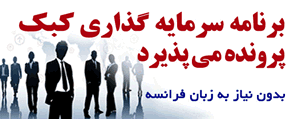Pressures within the Persian Community on the Youth’s Education
Pouneh Vaziri
It’s the final few days of the semester and you’re drenched in sweat as you clench your freshly-marked physics test. The red pen is stamped into the paper: 40/50. You scramble for your calculator, dropping your pens and pencils on the ground in the process. You punch in your mark into the calculator: 80%. Disappointment builds up inside of you and you can’t help but to feel sad and worried. Your other friends seem to be happy with their marks, many of whom have received lower grades then you! They seem to be confused about your lack of enthusiasm for your 80% grade, and the only thing you can say to them is, “You guys won’t understand, I have Persian parents”.
This may seem overdramatic, but the reality of the situation happens all too often in the Persian community. With so much pressure and emphasis placed on high grades in Iran, it is no surprise that the same ideologies have found their way to North America as well. In fact, when considering Canada’s high immigration standards, it is no surprise that the majority of Iranians immigrating to Canada are highly-educated and in good financial standings. Persian parents who are highly educated will most likely demand the same of their children and will have high expectations in regards to their children’s marks and future. Pressures to come home with an exceptional report card are immense, and failure to please one’s parents after the “We came all this way so you could have a great education” speech is electrifying.
In theory, it is not a bad idea at all to hold high expectations and demands for one’s children – especially in regards to school work. The problems arise when the pressures and demands for high grades begin to come from the wrong sources and with wrong intentions. The reality of the Persian situation is that not only do our parents want us to succeed, but they also want us to be more successful than our Persian neighbours, friends, and relatives. In fact, the greatest issues arise due to the pressures and competitions that we have between ourselves. To our parents and the older generations, it has become not only a norm, but almost a standard, to have one’s children grow up to become successful doctors, lawyers, engineers, or architects, and failure to abide by the norm seems to equate failures in parenting. The reality of the situation is that by implementing such high ideologies and expectations for both our children and our race as a whole, we are in fact causing more harm than good. The same standards that dominate Iran’s education system should not begin to dominate the Persian-Canadian standard of a North American education; especially in Canada, where the education system is flexible enough to allow deterring away from the university stream. The pressures between families to raise successful and professional children are so strong, that in many cases it works against their children and hurts their growth rather than foster it. As a university student in the science stream, I see all too often Persian students who are studying to become an engineer, doctor, or architect, but are not receiving the grades they need to enter such professional schools. In fact, in many cases the only drive to enter such fields comes from the students’ parents, who have most likely studied in the same fields back home.
Another group of students that one regularly meets on campus are students who are suffering and failing in their university careers, but could have become largely successful had they returned a year to high-school and/or entered into college rather than university. It is in this sense that the pressure between families becomes grossly evident: Persian parents cannot tolerate having their child enter college when the majority of their friends’ or families’ children are entering into university. In turn, they would rather have their child enter university where, in almost all cases, the child suffers both academically as well as emotionally by feeling incompetent in comparison to all the other students.
As Iranian-Canadians living in Canada, we are offered both the opportunity of living our beautiful life in an open country, as well as an opportunity to enlighten ourselves and open our minds. Pushing one’s children to enter into highly competitive and demanding programs, when they do not possess the natural ability or interest to be in such fields, is both selfish and destructive to one’s children as well as one’s family. It’s important to hold high expectations for one’s children, but only if these goals are achievable and realistic. Realize that attending an extra year in high-school, when necessary, can help your child improve their grades and knowledge before entering a post-secondary institute, as well as save you thousands of dollars in tuition, which would have to be repaid and retaken if the student fails those courses. Realize that attending college for a nursing or business administration program can be far more valuable and successful than studying a non-applicable program in university, only to be out of a job and in debt by the time of graduation. Most importantly, realize that your children and their needs are far more important than pride. Only in learning to differentiate between pushing one’s child, and pushing one’s child towards their own personal interests and ambitions, can we truly nurture success and growth for both our families as well as our growing Persian community.
The reality of the Persian situation is that not only do our parents want us to succeed, but they also want us to be more successful than our Persian neighbours, friends, and relatives.
مطالب مرتبط

دیوار مهربانی
نوامبر 04, 2016
«کانادا» یک اشتباه زبانشناسی!
می 30, 2016
آشنایی با نرم افزارهای کارآمد
می 30, 2016
کودک، مصرف، زندگی / سمیرا شاهپوری
ژانویه 22, 2016
آموزش مضامین جنسی در مدارس انتاریو
می 25, 2015
کمپهای تابستانی در کبک
می 05, 2015





























































